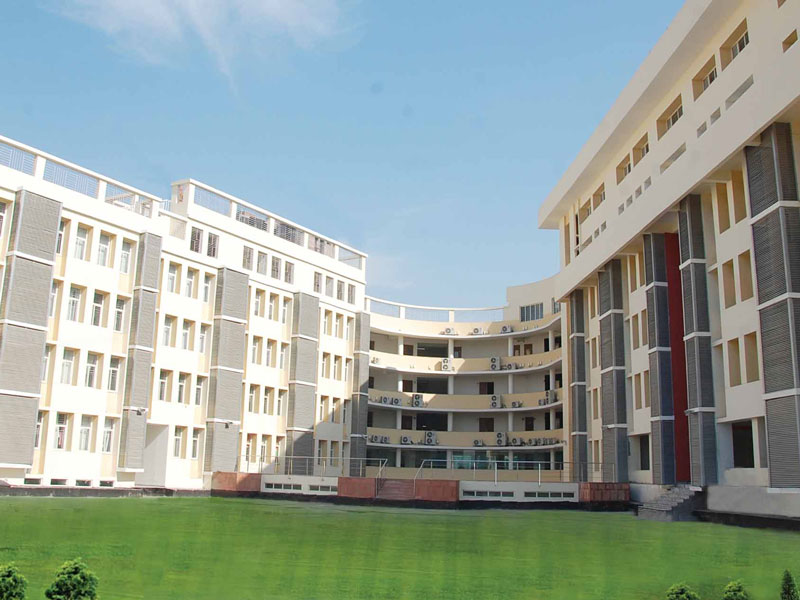In an increasingly interconnected world, the significance of international schools in preparing students for global careers cannot be overstated. These institutions go beyond the traditional educational model, aiming to cultivate a diverse and culturally aware generation of future leaders and professionals. By embracing a multicultural approach to learning, international schools foster an environment where students gain not only academic knowledge but also invaluable interpersonal and intercultural skills. This unique exposure enables them to adapt and thrive in an ever-changing global landscape, equipping them with the tools necessary to navigate cross-cultural challenges and make meaningful contributions to a wide range of international careers.
With globalization breaking down borders and creating unprecedented opportunities for collaboration and mobility, international schools play a pivotal role in shaping well-rounded individuals who can confidently interact and excel on the international stage. By offering internationally recognized curricula, such as the International Baccalaureate (IB) or Cambridge International, these schools ensure that students receive a comprehensive education that is universally respected and transferable. Moreover, through an emphasis on language learning, global citizenship programs, and international exchange opportunities, students are encouraged to embrace diversity, think critically, and embrace a global mindset. As we delve deeper into the 21st century, the role of international schools becomes ever more crucial in preparing the leaders and workforce of tomorrow, capable of making positive impacts on a global scale.
Why International School is Best for Your Child?
International schools especially those in Noida, India offer a compelling educational experience that extends well beyond the confines of a typical classroom. These institutions create a dynamic and inclusive community, bringing together students from various nationalities, cultures, and walks of life. This diverse environment exposes children to a rich tapestry of languages, traditions, and viewpoints, fostering a genuine appreciation for global diversity. By interacting with peers from around the world, students develop open-mindedness, empathy, and a deeper understanding of different perspectives. This prepares them to navigate the complexities of our interconnected world with confidence and adaptability.
Moreover, international schools often implement innovative and comprehensive curricula that prioritize holistic development. They emphasize not only academic excellence but also the cultivation of essential life skills such as critical thinking, communication, and collaboration. Through project-based learning, extracurricular activities, and a wide range of opportunities, students are encouraged to explore their passions and strengths, leading to a well-rounded education.
Additionally, these schools frequently offer advanced resources and technology, enabling students to stay at the forefront of educational advancements. In essence, an international school equips your child with the tools and perspectives necessary to succeed in an increasingly globalized society while nurturing their individual growth and potential.
Advantages of Choosing International Schools
Choosing an international school in Noida, offers a myriad of advantages that prepare students for success in a globalized world. Here are a few advantages that stand out.
1. Global Perspective: International schools attract a diverse student population, exposing students to peers from various nationalities and cultures. This multicultural environment fosters an appreciation for different perspectives, preparing students to thrive in a globalized world.
2. High-Quality Education: Many international schools follow internationally recognized curricula such as the International Baccalaureate (IB) or Cambridge curriculum. However, they also offer Indian ICSE or CBSE board to the students as well. These schools often uphold rigorous academic standards, employ experienced teachers, and utilize innovative teaching methods to provide a top-notch education.
3. Language Proficiency: International schools often offer language programs that enhance students’ proficiency in languages like English, which is essential for communication in international settings and for pursuing higher education abroad.
4. Holistic Development: International schools in Noida prioritize the holistic development of students. They offer a balanced approach that addresses not only academic excellence but also social, emotional, and physical well-being. This prepares students to face challenges with resilience and confidence.
5. Cultural Exchange: International schools facilitate cultural exchange through various activities, events, and celebrations. Students have the opportunity to engage in cultural dialogues, learn about festivals and traditions from around the world, and develop a global mindset.
6. Extracurricular Opportunities: These schools provide a wide range of extracurricular activities, allowing students to explore their interests and talents beyond academics. Students can participate in sports, arts, debates, community service, and more, fostering well-rounded development.
7. Advanced Facilities: Many international schools boast state-of-the-art facilities, including well-equipped classrooms, science and computer labs, STEM labs, libraries, sports amenities, and technology integration. These resources enhance the overall learning experience.
8. Global Network: Students attending international schools become part of a global network of peers, parents, teachers, and alumni. This network can offer valuable connections and opportunities for collaboration both during their education and in their future global careers.
9. College and Career Counseling: International schools for high school students often have dedicated college and career counseling departments. These services guide students through the university application process, helping them identify suitable institutions and supporting them in their career aspirations.
10. Preparation for International Universities: Noida’s international schools provide students with the skills and academic rigor needed to succeed in universities abroad. The exposure to international curricula and teaching methodologies equips students to excel in higher education on an international scale.
Curriculum and Teaching Approaches in International Schools
International Schools Curriculum
International schools often adopt different curriculum approaches to prepare students for global careers. Here are insights into the curriculum approaches of three prominent international education systems: International Baccalaureate (IB), Cambridge International, and Central Board of Secondary Education (CBSE).
1. International Baccalaureate (IB): The IB curriculum emphasizes holistic education, critical thinking, and international-mindedness. It offers programs like the Primary Years Programme (PYP), Middle Years Programme (MYP), and Diploma Programme (DP). IB focuses on inquiry-based learning, interdisciplinary study, and a learner-centered approach. This encourages students to become open-minded, reflective, and culturally aware, vital qualities for global careers. The IB curriculum also emphasizes languages, community service, and a well-rounded education that fosters adaptability.
2. Cambridge International: Cambridge curriculum focuses on academic rigor and inquiry-based learning. It offers programs like Cambridge Primary, Cambridge Lower Secondary, Cambridge IGCSE, and Cambridge International AS/A Levels. The curriculum encourages depth of understanding and mastery of subjects, preparing students for analytical and research-based roles. It also promotes the development of communication skills and cross-disciplinary knowledge, equipping students for diverse global careers.
3. Central Board of Secondary Education (CBSE): CBSE board, an Indian curriculum, is increasingly adopted by Noida international schools. It provides a strong foundation in core subjects and is known for its comprehensive and structured approach. CBSE curriculum ensures a balance between academics, co-curricular activities, and holistic development. While it might have a stronger focus on science and mathematics, it still emphasizes critical thinking, problem-solving, and communication skills, which are valuable for global careers.
Teaching Approaches in International schools
Noida International schools often adopt various teaching approaches to prepare students for global careers, recognizing the importance of equipping them with the skills and mindset needed to succeed in a diverse and interconnected world. Here are some teaching approaches commonly used in international schools for this purpose:
1. Project-Based Learning (PBL): PBL involves students working on real-world projects that require them to research, collaborate, and solve complex problems. This approach helps students develop practical skills and a deeper understanding of global issues, as they often work on topics with global relevance.
2. Cross-Curricular Integration: International schools often integrate subjects and themes across the curriculum to provide a more comprehensive and interconnected learning experience. This approach helps students see the connections between different fields of knowledge, which is valuable for understanding the complexity of global challenges.
3. Language Learning: Many international schools emphasize the importance of multilingualism by offering a strong language program. Proficiency in multiple languages such as English, Hindi and another foreign language enhances students’ ability to communicate and collaborate across cultures, which is crucial in global careers.
4. Cultural Competency Training: International schools focus on developing students’ cultural awareness, sensitivity, and competence. This involves exposing students to diverse perspectives, traditions, and experiences to help them navigate global environments with respect and understanding.
5. Technology Integration: International schools often leverage technology for collaborative projects, virtual international exchanges, and online learning resources. Proficiency with digital tools and online communication platforms is essential for success in today’s global job market.
6. Service Learning: Service learning combines community service with academic instruction, encouraging students to apply what they learn in real-world contexts. This approach instills a sense of social responsibility and a deeper understanding of global issues.
7. Comprehensive Experiences: Many international schools offer opportunities for students to participate in international exchanges, study abroad programs, and cultural immersion experiences. These experiences provide firsthand exposure to different cultures and ways of life.
8. Guest Speakers and Workshops: Inviting professionals from various global industries to speak to students or conduct workshops exposes them to different career paths and provides insights into the skills and qualities required for success.
9. Entrepreneurship Education: Some international schools integrate entrepreneurship education, teaching students to think creatively, take calculated risks, and develop innovative solutions. These skills are valuable in a rapidly changing global economy.
10. Critical Thinking and Problem Solving: Fostering critical thinking skills and the ability to analyze and solve complex problems is essential for preparing students to tackle global challenges and excel in various career paths.
11. Sustainability and Environmental Education: With growing concerns about the environment and sustainability, many international schools emphasize ecological literacy and encourage students to become responsible global citizens who understand the impact of their actions.
How International Schools Prepare Students for Global Careers
International schools play a crucial role in preparing students for global careers. Here are 10 key ways in which they do so:
1. Multicultural Environment: International schools create a diverse and inclusive environment that exposes students to different cultures, languages, and perspectives. This helps develop their global mindset and adaptability.
2. Experiential Learning: International schools organize field trips, study tours, and exchange programs that expose students to different countries and cultures. These experiences help students develop cross-cultural communication skills and a global perspective.
3. International Faculty: International schools often hire teachers from diverse backgrounds who bring their unique perspectives and experiences to the classroom. This exposure to international faculty helps students gain a broader understanding of the world.
4. Emphasis on Global Issues: International schools incorporate global issues into their curriculum, raising awareness about topics such as sustainability, social justice, and global citizenship. This helps students seeking international school admission to develop a sense of responsibility towards global challenges.
5. Technology Integration: International schools often integrate technology into their teaching methods, preparing students for the digital skills required in a global workforce. This includes using online collaboration tools, STEM education, virtual learning platforms, and multimedia resources.
Global Indian International School (GIIS) in Noida stands out in its commitment to nurturing students for global careers through a holistic approach. By fostering a multicultural environment, offering internationally recognized curricula, and emphasizing language proficiency, the school enables students to develop strong cross-cultural communication skills and a global perspective. The incorporation of cutting-edge technology and project-based learning encourages critical thinking, innovation, and adaptability, preparing students to excel in a rapidly evolving job market.
Furthermore, the students can enhance their career with GIIS’s counseling services, industry partnerships, and exposure to real-world experiences through internships and workshops. Hence, the school’s international perspective towards education allows students to make informed career choices and seamlessly transition into diverse global workplaces with confidence and competence.
The Future of International Schools and Global Careers
The future of international schools and global careers is set to be transformative, driven by rapid advancements in technology, increasing globalization, and a growing emphasis on cross-cultural competence. International schools are likely to become even more diverse and inclusive, catering to a wide range of nationalities and backgrounds, fostering a dynamic learning environment that celebrates cultural exchange and understanding. With the integration of cutting-edge technologies, such as virtual classrooms and augmented reality, students will have unprecedented access to a global network of educators and peers, transcending geographical boundaries and creating a truly borderless education.
Moreover, the demand for individuals with international exposure and cross-cultural skills will continue to rise, making global careers more appealing and rewarding. Multinational corporations and organizations will actively seek professionals who can navigate and collaborate seamlessly in a multicultural setting, facilitating innovation and problem-solving on a global scale. The rise of remote work and digital communication tools will also open up new opportunities for individuals to work across borders without the need for physical relocation. In this ever-connected world, those with international school backgrounds and global competencies will be at the forefront of shaping a more interconnected and harmonious future.
Final Thoughts
In conclusion, International Schools emerge as paramount institutions in effectively preparing students for the complexities of global careers. Through a blend of diverse cultural exposure, rigorous academic pursuits, and immersive language learning, these schools equip students with the multifaceted skill set demanded by today’s interconnected professional landscape. By fostering a deep understanding of various cultures, International Schools nurture students’ adaptability and cross-cultural competence, enabling them to confidently engage and collaborate in diverse international settings.
Furthermore, International Schools prioritize holistic development by emphasizing critical thinking, problem-solving, and interdisciplinary learning. This approach not only hones students’ cognitive abilities but also nurtures their creativity and resilience, traits essential for navigating the ever-evolving challenges of global industries. The practical application of knowledge through internships, community service, and extracurricular activities cultivates leadership and practical skills, allowing graduates to seamlessly integrate into global career pathways. Ultimately, International Schools stand as incubators for nurturing globally-minded individuals, poised to excel and make meaningful contributions in an increasingly interconnected world.
FAQs
Is it good to study in an international school?
Yes, it is extremely beneficial if your child gets admission in an international school because it does have its benefits:
1. Global Exposure: International schools often have a diverse student body representing various cultures and nationalities. This exposure can help you develop a broader perspective, cultural sensitivity, and a global network of friends and peers.
2. Quality Education: Many international schools adhere to rigorous academic standards and offer advanced curricula. They may follow internationally recognized educational systems such as the International Baccalaureate (IB) or Cambridge Curriculum.
3. Language Skills: Since international schools often use English as the primary language of instruction, you can improve your English language skills significantly, which is valuable in today’s globalized world.
4. Holistic Development: International schools often emphasize extracurricular activities, sports, arts, and community service, contributing to your well-rounded development.
5. Preparation for Higher Education Abroad: If you plan to study in foreign universities, attending an international school can provide a smoother transition due to its international curriculum and exposure.
6. Qualified Teachers: International schools often hire experienced teachers who are well-versed in teaching diverse groups of students. This can lead to high-quality education and individual attention.
What makes an international school international?
An international school is typically characterized by the following factors:
1. Students from myriad countries: International schools enroll students from various countries and cultural backgrounds. This diversity enhances cross-cultural interactions and global awareness.
2. Internationally recognized Curriculum: These schools often follow international curricula such as the International Baccalaureate (IB), Cambridge Curriculum, or other internationally recognized systems.
3. Language of Instruction: English is commonly used as the primary language of instruction, facilitating communication among students from different linguistic backgrounds.
4. Teachers from various countries: International schools often hire teachers from different countries who bring diverse teaching methodologies and experiences to the classroom.
5. Global Outlook towards education: The curriculum and teaching approach are designed to foster a global perspective, focusing on issues that transcend national boundaries.
6. Cultural Exchanges and events for students: International schools may organize cultural events, exchanges, and field trips to promote cross-cultural understanding.
Is International school better than CBSE?
This is a tricky question to answer because in the current era especially in India, there are many international schools that are offering not just IB curriculum but also CBSE board. And international schools with a CBSE curriculum go the extra mile by seamlessly integrating a globally-oriented approach into the standard curriculum. This integration exposes students to a diverse range of cultures, perspectives, and teaching methodologies, fostering a broader worldview and intercultural competence.
Furthermore, the enhanced facilities and resources provided by international schools contribute to a holistic learning journey. State-of-the-art classrooms, cutting-edge technology, and world-class extracurricular opportunities complement the CBSE curriculum, promoting a well-rounded development that extends beyond academics. Students benefit from exposure to international standards and practices, which can empower them to excel not only on a national level but also on a global scale.
In essence, while both options have their merits, choosing an international school that offers the CBSE curriculum can offer a distinct advantage by combining the familiarity of a recognized curriculum with the advantages of an internationalized learning environment and top-tier facilities.
Is international school worth it in India?
The value of an international school in India depends on individual circumstances and priorities. International schools often offer a globally recognized curriculum, such as the International Baccalaureate (IB) or Cambridge International, fostering a more diverse and inclusive learning environment. They can provide exposure to different cultures, languages, and teaching methodologies, preparing students for an interconnected world. However, it’s essential to weigh the benefits against the higher cost of tuition and consider if the school aligns with your child’s learning style and future goals. Additionally, the quality of education and facilities can vary, so thorough research and visits are crucial to determine if an international school genuinely meets your expectations and offers a unique educational experience.
What syllabus does international school follow?
International schools often follow internationally recognized curricula such as the International Baccalaureate (IB), Cambridge International Examinations (CIE), or the International General Certificate of Secondary Education (IGCSE). These curricula are designed to provide a global perspective on education, focusing on critical thinking, inquiry-based learning, and a broader understanding of various subjects. The IB curriculum is renowned for its emphasis on holistic development and international-mindedness, while the Cambridge IGCSE and A-levels offer a rigorous and comprehensive approach to academics. Some international schools may also blend these international curricula with elements of the Indian national curriculum (CBSE), enabling students to achieve a well-rounded education that combines global perspectives with local context.
Which board is best in international school?
The choice of which international board is “best” for an individual student depends on their personal preferences, learning style, future goals, and the offerings of the school. Each international board has its own strengths and characteristics. However, the most popular board choice amongst parents while enrolling their children in an international school is international baccalaureate (IB)





































